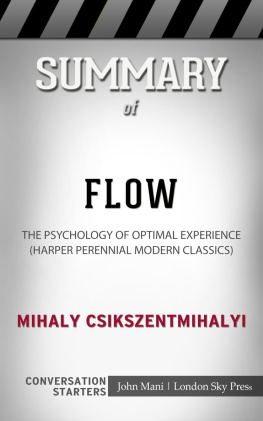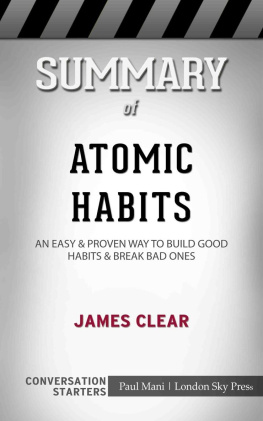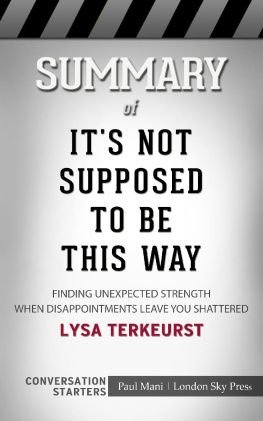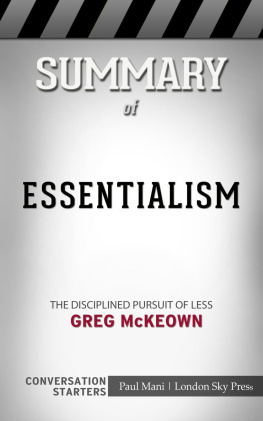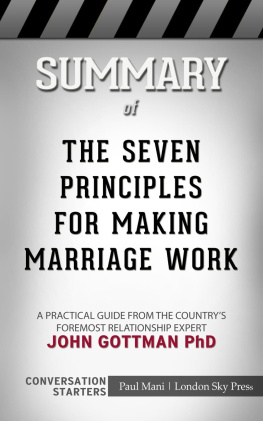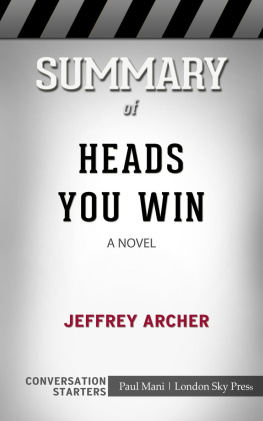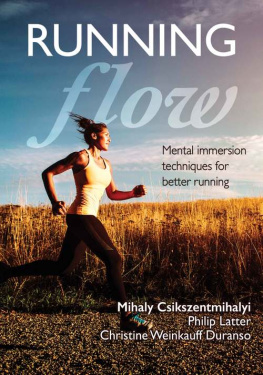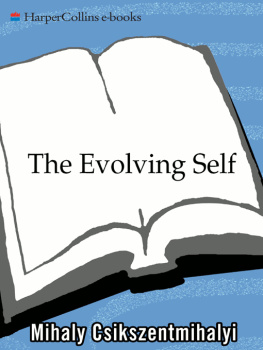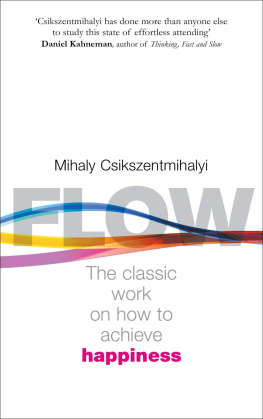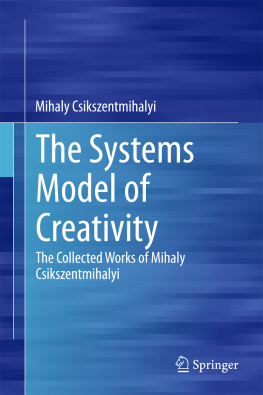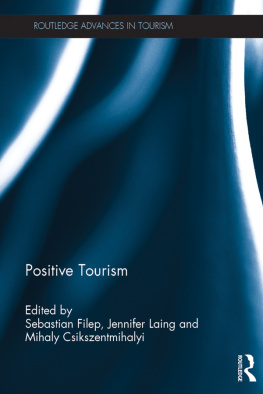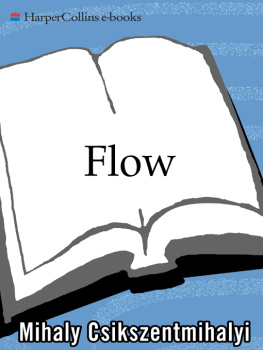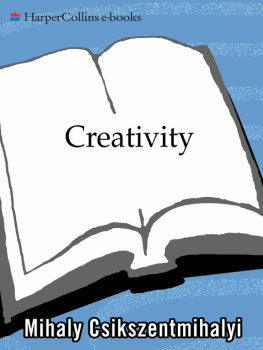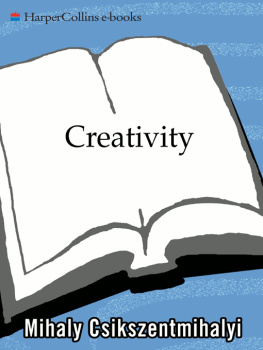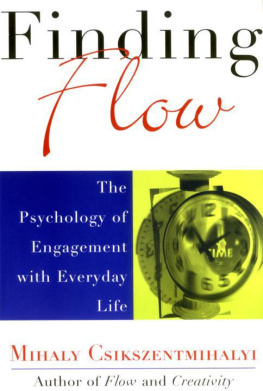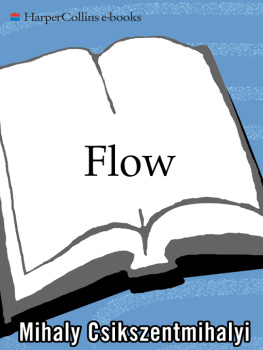Summary
of
Flow
Mihaly Csikszentmihalyi
Busy Readers Conversation Starters
Paul Mani,
London Sky Press

Please Note: This is an unofficial conversation starter companion work. If you have not yet purchased or read the original work, we encourage you to do so first.
Thank you for purchasing our companion work from London Sky Press. Our mission is to aid readers & groups with ready-to-use discussion materials for further discovery into some of todays most important books.
Copyright 2019 by London Sky Press. All Rights Reserved.
First Published in the United States of America 2019
Disclaimer / Terms of Use: Product names, logos, brands, and other trademarks featured or referred to within this publication are the property of their respective trademark holders and are not affiliated with London Sky Press. The publisher and author make no representations or warranties with respect to the accuracy or completeness of these contents and disclaim all warranties such as warranties of fitness for a particular purpose. This is an unofficial work not authorized, approved, licensed, or endorsed by the original book's author or publisher and any of their licensees or affiliates.
No part of this publication may be reproduced or retransmitted, electronic or mechanical, without the written permission of the publisher.
Tips for Using Conversation Starters:
EVERY GOOD BOOK CONTAINS A WORLD FAR DEEPER THAN the surface of its pages. The characters and their world come alive through the words on the pages, yet the characters and its world still live on. Questions herein are designed to bring us beneath the surface of the page and invite us into the world that lives on. These questions can be used to:
- Foster a deeper understanding of the book
- Promote an atmosphere of discussion for groups
- Assist in the study of the book, either individually or corporately
- Explore unseen realms of the book as never seen before
About Us
THROUGH YEARS OF EXPERIENCE AND FIELD EXPERTISE, from working with newspaper featured book clubs to local library chapters, we have developed a unique approach to bring out the most interesting parts to the table for discussions. Conversations Starters brings a fresh look into book discussions and brings them to life. Join us as we discuss some of todays most important books.
Table of Contents
Introducing Flow

F
LOW: THE PSYCHOLOGY OF OPTIMAL EXPERIENCE IS A BOOK WHICH reveals author Mihaly Csikszentmihalyi's exploration of what it means to have an optimal experience.
The book suggests that the state called flow is the key to deeply satisfying experiences in life. It is a state of consciousness that creates total involvement, creativity, and full enjoyment. The author presents a groundbreaking idea and shows how people can tap into this flow state, control it and direct a life that is full of meaningful experiences. Taking hold of the information that we are conscious of and knowing what to do with it is an effective way to make our lives satisfying.
The book describes what "psychic entropy" is and how this creates an obstacle to one's happiness. It is the state when random thoughts are allowed to take over one's mind. Flow is the opposite of psychic entropy and the author explains how moving from entropy to flow is a good gauge of happiness. The author explains the conditions for flow to happen. Eight elements are identified. The first is the willingness to confront work that requires us to finish it. The second is being able to concentrate on a particular chosen task. The third is the presence of goals that are clearly defined. Fourth is the presence of immediate feedback that allows one to see progress. Fifth is the feeling of effortlessness which enables one to forget about daily worries. Sixth is feeling in control which makes one gain a sense of empowerment. Seventh is gaining confidence which allows one to feel a sense of worth. And eighth is losing track of time. He presents case studies of flow and how people have achieved this preferred state. Idleness is not the path to flow and will therefore not lead to happiness. It is doing what one loves and pursuing activities that lead to a more complex human being that make people happier. The author teaches readers to think of order and complexity as against chaos, as ways to create a life that one wants. Creating order in one's consciousness, controlling what goes on in mind, is the key to happiness, he says. The book features his investigation of the meaning of happiness and cites how the author carried out his studies to determine the answer. He shares how happy moments are not chance occurrences but are a result of specific activities that the subjects purposely engage in. He cites the experiences of athletes who call the experience being "in the zone," the ecstasy that mystics feel, and the rapture that artists go through. For many people, it is when time stands still.
The author differentiates pleasure from enjoyment. Challenging tasks that demand attention are found to be enjoyable while things and experiences that give pleasure are often passive experiences; they do not lead to a person's growth.
The New York Times Book Review cites the author's view that flow is the antidote to anxiety and boredom. It is also a cure for social problems and psychological difficulties. However, the author does not explain how society can go about changes in order to enable people to experience flow. He seems to imply that flow is the solution to other complex problems and that people have to find their own flow experience. The review says the author's suggestion is too idealistic and is likened to religious conversion on a massive scale.
He is also carried away by his enthusiasm by citing people who live their lives daily in a state of flow, which means there is not one moment of being passive. The reviewer says this made her feel anxious and wanted to escape from flow by taking a nap.
An Amazon review says the book highlights flow as an important part of the experience and it gives good flow examples. But the review questions the validity of equating flow with happiness. It asks whether the flow is the answer to everything and whether unhappiness means psychic entropy. It asks if the flow is the answer to a mind that is often distressed by real problems. It also cites the author's admittance that not all flow experiences are necessarily good.
The book also does not mention more recent studies that are related to the flow experience. Daniel Kahneman, in his book Thinking Fast and Slow, has claimed that even if one has access to the flow experience, it is just one part of a person's experience of self. Daniel Gilbert also wrote in Stumbling on Happiness that people have a level of happiness that they are comfortable with no matter how much effort one puts into being happier than one is.
Meaningfulhq.com says flow is a state that cannot be forced on people if they don't care to experience it. It's for those who want to be extremely immersed. But those who cultivate the flow practice will be more fulfilled and happier. A review at medium.com says her own experience of flow comes from full concentration on a design problem that she is attempting to solve. The book helped her to realize that she can consciously enter the flow experience if she wanted to. A review by Newsweek says the book rethinks the reasons behind motivations.
Next page
